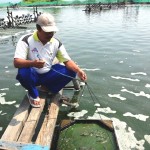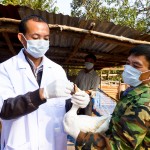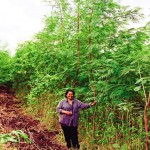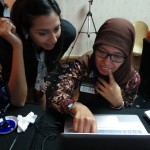
Climate change is a serious threat to food security and agriculture in Vietnam. Nearly 1.1 million hectares, or 70 percent of the country’s total cultivable land, is threatened by a sea level rise of just 1 meter.

Fish farmers in parts of Indonesia are sometimes left fishing for answers when they have questions regarding their work, and delays in responses can be costly. But through mobile technology, access to an informational database or live help from an expert is now available at their fingertips.

USAID and its partners, including FAO and WHO, have been at the forefront of responding to avian influenza and other emerging pandemic threats. Since 2006, USAID has funded activities to help 20 countries around the world—many in South and Southeast Asia—better control outbreaks with field detection, field sampling and laboratory analysis.

Thai farmers are turning away from pesticides and restoring highly degraded land with trees that can live in damaged soil. The trees grow quickly and can thrive in areas where many other species struggle. They require no irrigation and can survive even the driest conditions.

One of these scientists is Dyah Marganingrum, a water management expert. In her native Indonesia, the urban poor are particularly at risk for not having enough clean water. According to Indonesia’s Ministry of National Development Planning, nearly 70 percent of urban households do not have access to a piped water supply and 30 percent do not have access to the most basic sanitation.







Comment
Make a general inquiry or suggest an improvement.